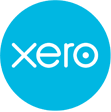The end of the tax year is fast approaching, so here are our top tips on how to be as tax efficient as possible. Please note that the rates and thresholds mentioned relate to England and Wales; rates and thresholds in Scotland are different.
For more information about any or all of the below please get in touch.
Avoid hitting critical ‘income thresholds’
There are four fundamental income thresholds to avoid for 2024/25:
- £60,000. This is the level at which the High Income Child Benefit charge applies so that Child Benefit becomes repayable. It is repayable in full once income reaches £80,000.
- £50,270. At this level of income the higher rate of tax kicks in: earnings and other income are taxed at 40%, dividends are taxed at 33.75% and the tax-free interest allowance drops to £500.
- £100,000. At this level of income the personal allowance starts to be withdrawn. It is withdrawn in full once income reaches £125,140.
- £125,141. At this level of income the top rate of tax kicks in: earnings and other income are taxed as 45%, dividends are taxed at 39.35% and the tax-free interest allowance is withdrawn.
It’s worth reviewing your likely income for 2024/25 and if you might be close to exceeding one of these thresholds consider taking action to reduce your taxable income.
This could be achieved by making or increasing pension contributions or gift-aid donations.
Transferable Married Couples Allowance
If you or your spouse earns less than the personal allowance while the other is a basic rate taxpayer, consider making a claim for transferable married couples allowance.
This enables you to transfer 10% of your personal allowance from one spouse to the other and is worth £252 for 2024/25.
Prior to 5 April claims can be made going back to 2020/21.
Tax-free dividend allowance
If you are a director/shareholder of your own company, make sure you at least use your tax-free dividend allowance of £500 for 2024/25.
You could also consider making your spouse or other trusted family members shareholders to make use of their tax-free dividend allowance.
Bear in mind that the company must have profit reserves in order to make a dividend payment, and that the dividends themselves are not tax deductible for the company.
Tax-free interest
Directors who have lent money to their limited company should also consider taking an interest payment from the company.
Basic rate taxpayers can receive interest of £1,000 tax free whilst higher rate taxpayers can receive interest of £500 tax free. This includes interest received from your own company.
The company will have to deduct tax from the interest and pay it over to HMRC to be reclaimed by the individual and there is some paperwork to complete.
The interest is tax deductible for the company.
Use your capital gains tax annual exemption
Every individual has a capital gains tax annual exemption which allows you to make tax-free capital gains of up to £3,000 in 2024/25 before capital gains tax becomes payable.
Although bed-and-breakfasting rules prevent you from selling shares to realise a gain and immediately re-purchasing them, you can legitimately sell your shares to realise the gain and your spouse could re-purchase them. You have then realised your gain tax-free and your spouse has acquired them at a higher base cost.
Your spouse could gift these back to you or sell them at a future date with that higher base cost reducing the future tax payable.
Alternatively, consider selling shares to realise a gain and then re-purchasing them yourself within an ISA (known as a bed-and-ISA).
Maximise your pension contributions
Regardless of your income level, everyone can make pension contributions of £3,600 each year. For a private pension you would contribute £2,880 with £720 being added automatically as basic-rate tax relief.
You can contribute up to 100% of your pensionable earnings for 2024/25, or up to £60,000 if lower. There are also options to carry forward any unused pension contributions allowance from the previous three years. Take care not to exceed your annual and lifetime allowances as there are penalties for doing so.
Making pension contributions has the added benefit of reducing your taxable income if you need to avoid exceeding those income thresholds above.
If you are a company director then your company could make pension contributions on your behalf as part of your overall remuneration package. These contributions would be tax deductible for the company but a tax-free benefit for you.
Use your ISA limits
Make use of your ISA limits where possible. The ISA allowance for 2024/25 is a generous £20,000. The Junior ISA or Child Trust Fund allowance is £9,000.
Consider your Inheritance Tax position
Make use of your annual exemptions for gifts that can be made with no consequences for inheritance tax:
- Each year you can gift a total of £3,000; this can be carried forward one year if unused.
- In addition you can gift up to £250 to an unlimited number of people each tax year.
- You can also make gifts as normal expenditure out of income.
Make tax efficient investments
If you are facing significant income or capital gains tax liabilities, consider making tax efficient investments such as the Enterprise Investment Scheme (EIS), the Seed Enterprise Investment Scheme (SEIS) or Venture Capital Trusts (VCT)
Investments can save income tax at the following rates:
- EIS – 30% of the amount invested up to investments of £1,000,000
- SEIS – 50% of the amount invested up to investments of £100,000
- VCT – 30% of the amount invested up to investments of £200,000
These investments can also be used to defer capital gains, while the investment itself can be sold capital gains tax free in the future providing certain conditions are met.
If you need any help or futher information on the latest tax planning advice, please get in touch with Kathryn today.





